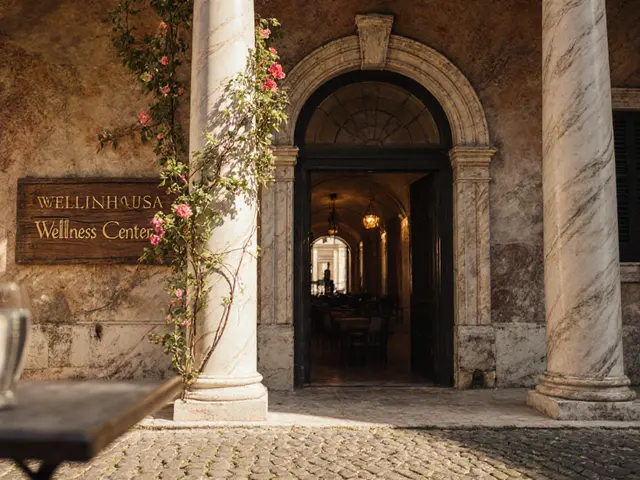Rome in the ’90s wasn’t just about fashion, politics, or gelato. It was the center of a new wave in the Italian film scene, and Selen was right there in the middle of it—fresh, fierce, and ready for more than just her fifteen minutes. When she landed in Rome as a young performer, she didn’t have industry friends or family connections. What she did have? Nerve, and a sharp sense for what audiences wanted.
If you’re wondering how Selen actually got started, it’s not as mysterious as some tales would have you believe. She knocked on doors, went to castings herself, and said yes to gritty, small gigs most people turned down. Basically, Selen hustled. It’s a move more people should copy—nobody’s coming to hand you stardom in a silver box. Want to break in anywhere? Be prepared to hear no a lot, but keep showing up until you grab a yes.
- Selen's Arrival in Rome
- Early Career Moves
- Life on Set: True Challenges
- Building a Reputation
- Tips for Aspiring Performers
Selen's Arrival in Rome
When Selen first hit the Rome scene in the mid-1990s, she wasn’t famous yet. She was just Luce Caponegro from Rimini, hoping to make something out of the wild world of Italian entertainment. She showed up with a suitcase and not much in her bank account. That's not a made-up story—it’s exactly what happened. Selen took buses and trains to auditions, often holding down small modeling jobs in between just to cover rent. Every newcomer will tell you, Rome can be overwhelming. For Selen, it was all about taking her shot and not letting intimidating producers or flashy industry folks scare her off.
Fact is, the Italian cinema industry, especially in Rome, was a tight-knit circle. Breaking in wasn’t easy, but Selen didn’t care much for the old rules. She’d show up early for castings, always dressed sharp and ready, so directors remembered her. There are plenty of stories from local assistants who’d see her outside Cinecittà studios, rain or shine, waiting to meet anyone who’d talk. She once said in an interview, “You had to be a little stubborn, otherwise Rome eats you alive.”
Here’s a practical peek into what it took for Selen to get noticed in Rome’s crowded scene:
- She networked hard—but genuinely. No fake smiles, just sharing her real story and goals with everyone from casting directors to grips.
- She took all sorts of jobs—small photo shoots, local ads, even minor speaking gigs on daytime TV, just to make connections and build a name.
- Selen kept her look fresh and unique. Instead of copying big stars, she focused on what made her different and leaned into that vibe.
Back in those days, only about 5-10% of newcomers in Rome’s entertainment industry landed steady gigs within their first two years. Selen beat those odds simply by showing up, taking rejection in stride, and outworking a lot of her peers. She treated each meeting and every early morning like it could be her break—and that mindset is something a lot of people overlook.
Today, Rome remembers her early grind and hustle as the turning point when Selen went from outsider to rising star.
Early Career Moves
You really couldn’t talk about the rise of Selen in Rome without digging into her first steps in show business. Before she was a household name, Selen (real name: Luce Caponegro) started by grabbing spots as a TV presenter and working in local modeling gigs. She showed up at auditions in Rome with a portfolio that wasn’t packed, but what she lacked in experience she made up for with guts.
By 1993, Selen took a big leap and accepted her first film roles that leaned into the bold, edgy side of Italian cinema. She hit the screens in Riccardo Schicchi’s movies—a name that means a lot in the Italian cinema world. These roles weren’t glamorous by mainstream standards, but they got people talking and, more importantly, landing her more work. In less than two years, Selen had gone from random casting calls to working alongside big names in the adult industry. In 1994 she scored the Best New Starlet award at the Hot d’Or ceremony in Cannes, which opened a lot of doors for her in Europe.
If you want to learn from her moves, here’s what made the difference:
- She didn’t stick to one medium. Selen took jobs in TV, film, print, and even music videos.
- Her team-up with well-known directors helped her skip a few rungs on the ladder.
- She built a recognizable look—short black hair, unmistakable confidence—even when she was still unknown.
The coolest part? Selen managed all this at a time when social media was just a fantasy. If you wanted fans or gigs, you had to actually show up in person, day after day.
| Year | Breakthrough Event |
|---|---|
| 1993 | First roles in Schicchi's films |
| 1994 | Won Hot d'Or Best New Starlet |
That’s what early career hustle in Rome looked like for Selen—no shortcuts, just grit and some gutsy decisions.
Life on Set: True Challenges
Working in Rome’s entertainment world, especially as Selen did, was always less glamorous than people think. Sure, there were glossy posters and TV spots, but the daily grind was no joke. Filming days could stretch 12 hours or more, and basic comforts like snacks or working AC were hit-and-miss. Selen often talked about showing up at 6 in the morning just to wait around for hours till her scene got called. That’s normal for many in the entertainment industry here.
Language barriers on set were real, especially with international crews. Selen picked up quick Italian movie slang, but even then, mixing up terms could turn a simple scene into chaos. Scripts changed on the fly, so she had to memorize lines in a rush or just improvise. If you think film shoots run like clockwork—think again. There was a lot of ‘hurry up and wait.’
Then there’s the crew: makeup teams scrambling to fix smudges in tiny trailers, directors shouting over traffic noise, and wardrobe hunting down last-minute fixes at the street market. One little-known fact? Most of Selen’s early work had to be shot on tight budgets, so she sometimes did her own hair and makeup. She never complained, but it was a grind.
- Late-night shoots happened way more than anyone admits—she often filmed until 2 or 3 a.m. if weather or permits forced a reschedule.
- She dealt with some outdated attitudes, having to prove herself over and over, especially being new in Rome’s circles.
- Eating right? Forget it. Selen said she lived on cold pizza and espresso during her first year on set.
People in the Italian cinema world know Selen for her grit. Anyone wanting to follow her path should expect wild schedules, rough living, and almost zero sleep—but that’s also where the funniest stories and closest friendships come from. Her work behind the scenes shaped her reputation way more than anything fans saw on screen.
Building a Reputation
When Selen arrived in Rome, her name didn’t open doors—her work did. She chose jobs very carefully, looking for gigs where she could stand out in the crowded entertainment industry. One big moment was her bold appearance on "Il Maurizio Costanzo Show" in 1995. That TV spot made Italians across the country remember the name Selen. After that, directors started calling her, not the other way around.
But it wasn’t just talent or looks that built her brand; Selen worked like her life depended on it. She showed up early, learned lines fast, and treated people on set decently, no matter who they were. In Rome, words travel quickly—a diva meltdown could stain a career, but Selen got a reputation for reliability and a down-to-earth attitude. When crews need to get through a 14-hour shoot, that matters more than you’d think.
She also didn’t get boxed into one role. When producers tried to keep her in the same lane, Selen made sure to surprise everyone—from TV appearances to comedy skits, she showed up wherever there was a camera and an audience. She even hosted late-night talk shows and made cameos in Italian cinema, which kept her name trending.
Her strategy was simple but effective. Here’s what Selen did to keep her star rising in the Italian cinema world:
- Said yes to projects that offered variety
- Kept relationships solid on and off the set
- Spoke openly with the press—no taboos, no dodging tough questions
- Collaborated with both veteran directors and young talent
If you ask local crews in Rome, many will mention how Selen could work back-to-back gigs for weeks and still walk on set with energy—even if she had just four hours of sleep. That’s why, by the late ’90s, other newcomers in Rome wanted her advice on surviving the business.
Tips for Aspiring Performers
If you’re eyeing a spot in the Selen scene or just want to carve out a place in Rome’s wild entertainment industry, skip the daydreams and stick to strategy. Selen’s path wasn’t magic; it was method. Here’s what works, straight from people who’ve been on set with her.
- Show up, always. Selen rarely missed a casting, even when it was awkward or badly organized. Everyone forgets the person who bails. Nobody forgets the one who always shows up, always ready.
- Build real contacts, not just social media follows. Selen worked with actual Italian crews, often grabbing coffee with casting folks after auditions. Rome’s film world is small—your reputation is your lifeline.
- Learn the basics behind the camera. She knew what a gaffer did. She picked up the basics of lighting. That helped when she needed to impress a director in three minutes flat.
- Don’t fake the language. Italian cinema loves authenticity. Selen spoke fluent Italian; those who struggled often found themselves left behind. If you can’t speak the language, take classes. It opens doors quicker than a flashy headshot.
- Embrace the small gigs. Her earliest jobs? Low budget, not glamorous, but she gave them everything. In Rome, two or three line performances can become a ticket to more serious roles.
Rome’s entertainment industry is still tight-knit. Get a bad rep and you’ll be out quick. Word gets around—both good and bad. Selen always made deadlines, treated extras like equals, and never left the set a mess. Those habits got her called back. That’s the secret sauce.
| Key Skill | Why It Matters |
|---|---|
| On-time arrival | Directors always remember punctual people |
| Learning Italian | Improves chance of landing repeat gigs |
| Networking in person | Casting decisions are often made face-to-face |
Bottom line: if you want to make it like Selen, blend hustle with humility. Ignore the fantasy—you’ll need thick skin and a real work ethic. That’s how you survive in the Italian cinema game.



